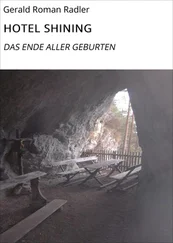The woman closes the bag and sticks her hand out. “You got some money so I can bring something home to my kids?”
She reaches into her purse and takes out a twenty-dollar bill. The money will probably go into the woman’s veins. But just for this moment in time she wants to believe it will buy a couple of cans of Campbell’s soup, a loaf of bread, and a bottle of milk for some hungry children. She wants to think all kids everywhere have the possibility of a second chance.
She turns back toward her hotel, walking slowly, taking in the dawning of the evening. In a little while, she may venture out on her own, try one of the many restaurants lining Columbus Avenue. Right now, though, it’s beautiful here, with the lights turned on against the white stone of the museum.
If your skin could sing
Like branches under full moon
Oh the shine, the shine
— Erin Hollowell on Twitter, 2015
Sugaring / April 9, 2015 Francis
THE KNOB ON THE sugarhouse door feels cold and damp to his bare hand as he pulls it shut. He took his gloves off when the last of the sap had turned to syrup, the filtering was finished, the golden liquid poured, and the season was over for the year. He’ll come back to finish cleaning up in the morning.
Outside, a silver-dollar moon spills light over the melting snow and patches of frozen mud. His breath smokes away from his mouth. He’ll turn sixty-three this year. His back hurts like hell, and one of his wrists sports an oozing slick gash where he managed to burn it on the evaporator. He and Georgina can’t afford more than one hired hand during sugaring season now, and they can’t allow Mia to keep coming home to help. He used to feel jubilant at the end of the last day of sugaring for the year. Now he just wants to crawl into bed, drag the quilt up over his head, and sleep for a week. The only thing harder to imagine than not entering that sugarhouse again next early spring is the thought of entering it again.
Still, at least this year won’t have been the worst. Last year, a big seed year with erratic weather, was. Or 2012, with that sudden heat wave. The snowfall here in New England this year has been pitiless, but on the good side, nights stayed cold long enough for them to gather 6,500 gallons, up more than five hundred from last year. The day his profit goes under $7,500 is the day he’s sworn he’s going to give the whole thing up. They should get at least $1,000 more than that this year. Which means he’ll be at it again come next March or, if the winters return to getting shorter, next February.
He runs a hand through his hair. There was a time when he didn’t own a bank account. Now he has an accounting firm in his head.
It must be 2:00 a.m.
When he and Georgina first took up sugaring, money was still pouring in from his music. Slowly that torrent thinned to a stream, then to an occasional dribble. It was okay, though — they had the interest from Georgina’s trust. For that matter, they still had Georgina’s trust; soul-sucking 2008 hadn’t happened. For all those years, sugaring was mostly a diversion: they’d risen above Georgina’s past, they’d risen above his past, they’d ridden the wave of his sudden success to create a new life for themselves and the baby they had coming on a big old farm in the hills between Massachusetts and Vermont, and they had to do something with it both for tax purposes and their sanity. Waiting for that perfect early spring combination of frozen night and thawing day, tapping the maples, collecting the sap, boiling it down, dividing it between the containers, and then bringing it around to stores and fairs to be sold gave a sense of order to their life. Everything else on Iona Farm was pinned to the sugaring: the strawberry fields they put in a few years later, the apple orchard they eventually bought next to the property.
And Georgina loved it. She thought it was hilarious. Who would ever have pictured me doing this? she would say each time sugaring season came around, tossing one of his too-big-for-her heavy wool plaid shirts over her leather pants and cashmere sweater. For those six or seven weeks during sugaring, she’d stay clean as a whistle, rolling up her sleeves to pitch in like anyone else. It wasn’t even a struggle. They’d throw a whopping backyard party when it was over, inviting the whole township, little Mia running through everyone’s legs in oversize boots, a maple-walnut sticky bun in her hand and sugar parentheses in the corners of her mouth, the sound of the creek rising in the background. Those were good times.
It’s been a while since they held one of those parties. Now they’re lucky if sugaring season lasts five weeks. The winters aren’t cold enough or they’re too cold, and the thaw comes too suddenly. The rhythm is off, and in protest, the maples aren’t giving up sap as they once did. Mia says the problem comes not only from the weather but also from acid rain and chemicals in the groundwater. She flirted with environmental science before deciding to study law like her Aunt Molly. She also, somewhere along the line, stopped running between everyone else’s boots and slipped into helping with the sugaring.
And that’s the other problem. With this winter’s relentless snowfall, so deep not even the hardy snowdrops could make their way through the drifts, so persistent the earth has remained blanketed with white when it should be dusted with dusk-blue hepatica, Mia is helping later than expected — too close to her final exams. He shouldn’t have let her. No amount of maple syrup is worth it.
On the other hand, if she’s going to need funds now for law school, how to help her without that little extra bit from sugaring?
Money.
The light is on in the old barn. The first couple of years they lived here, a local farmer rented their west pasture and old barn for his herd of specialty cows. But Georgina hated those cows; she said watching them lumber around, their mouths endlessly chewing, made her feel more existentialist than Sartre and Camus put together. It’s enough to drive a person to drink, she said. When Georgina says things like that, it’s a good idea to listen. As soon as the farmer’s lease ran out, he had the cows removed and converted the pasture to a strawberry field. The barn has since been used to store extra sugaring equipment and hay for packing around the berries.
Mia is inside, sitting cross-legged next to the electric heater with a weathered leather-bound diary in her hands.
“It’s your grandfather’s medical log. Nothing private,” she says quickly.
He scratches his arm, confused as to what she could be doing still in here. They’ve been working like dogs since morning. “Aren’t you tired?”
She shrugs, her slight shoulders poking out of her down vest. Her face is pure Gannon — the same sharp cheekbones, heavily lashed blue eyes, straight brow — but she’s inherited Georgina’s delicate frame and unpredictable sense of humor. A few years ago, a cub reporter working a “where are they now” story appeared at the farm. What do you consider your greatest creation? the reporter asked, expecting no doubt a doleful nod to a song written almost three decades earlier.
What a silly question.
“For every patient he saw,” Mia says, “he noted down the date, time, name, address, complaint, diagnosis, treatment recommended, and payment. All by hand, in the most perfect cursive.”
“That would have been your great-grandmother,” he says, dropping onto a hay bale. They’ll have to wait for all the snow finally to be gone to start planting this year’s strawberry crop and lay this hay, which means when the time comes it will need to be done fast. “She handled all the patient interfacing for your great-grandfather’s medical cabinet. She even drove him to see his patients.”
Читать дальше











